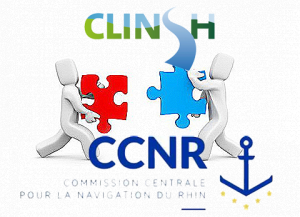In the study into the financial instruments to stimulate emission-reducing measures in inland shipping, the CLINSH project joins forces with a consortium of parties consisting of Panteia, Pro Danube Management, Rebel Transition Management and Foundation Projects Inland Shipping / Expertise and Innovation Center Inland Shipping. Commissioned by the Central Commission for the Navigation of the Rhine, this consortium is conducting several studies aimed at advising on the development of a European funding and financing scheme to realize the transition to zero emissions in European inland shipping.
Financial instruments to support the roll-out of greening techniques
In addition to demonstrating emission-reducing techniques in practical situations, the CLINSH project also aims to stimulate and facilitate the roll-out of those techniques which is also necessary to achieve the climate target by 2050 - up to 90% emission reduction in the transport sector. An important point of attention when rolling out the techniques is the way in which it is all made financially possible. The greening investments for ship owners are high. The question that many inland skippers have is whether these investments will be recouped.
Synergies and mutual benefits
Laure Roux, Market and Economic Affairs Administrator and Project Leader at CCNR, sees logical added value in the collaboration with CLINSH: “The knowledge sharing that results from the collaboration with the CLINSH project improves the quality of our research. It will allow to disseminate the research results more widely to the attention of the various stakeholders thereby increasing their impact and acceptance Both of us as well as the study results will benefit from the synergies between the two study projects.”
Remco Hoogma, City of Nijmegen and research leader Policy Recommendations in CLINSH adds: “Through this collaboration, we contribute to a broad-based research into financing instruments that facilitate greening in the inland shipping sector. CLINSH is the Europe’s largest project on demonstrating emission reduction technologies in inland shipping subsidized by the EU and it provides a lot of practical experience and knowledge of emission reduction in this sector. We can contribute this expertise to CCNR’s research and we can use their research in our policy scenarios. So the cooperation between CLINSH and the consortium led by CCNR provides mutual benefits.”
The research results are expected to be announced in the third quarter of 2020 and submitted to, among others, the European Commission.

